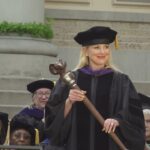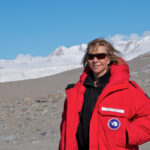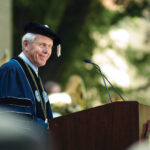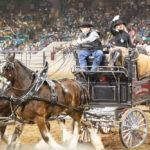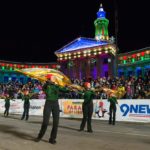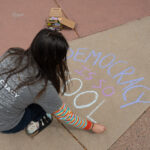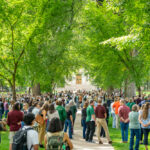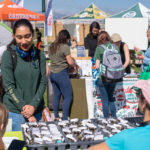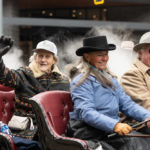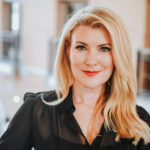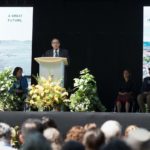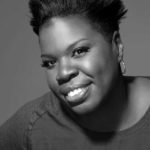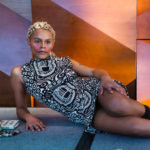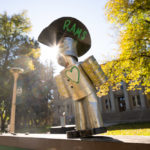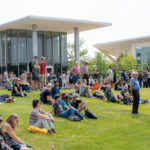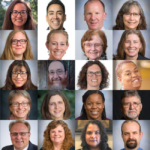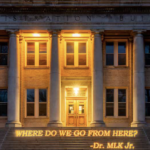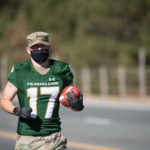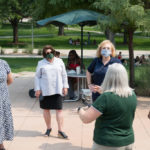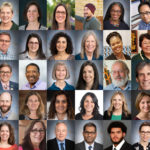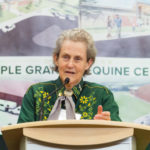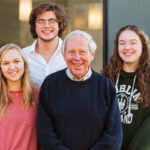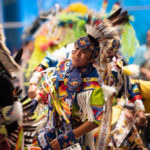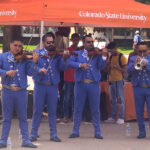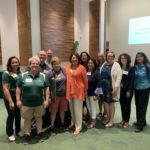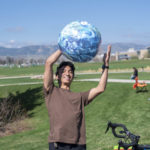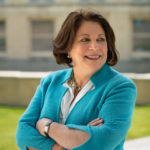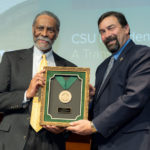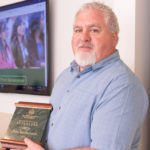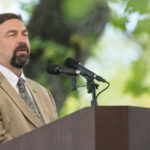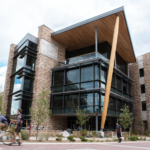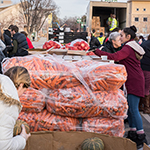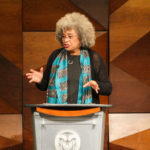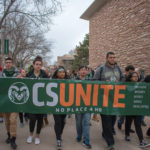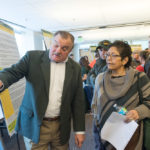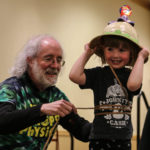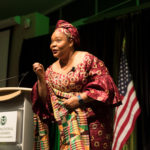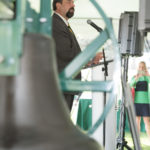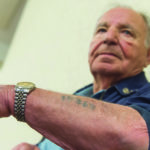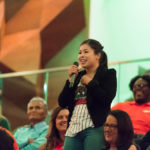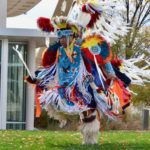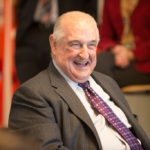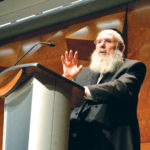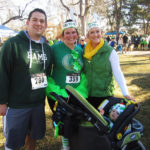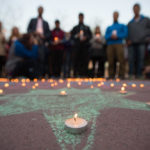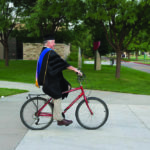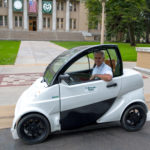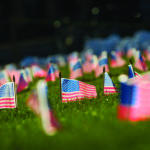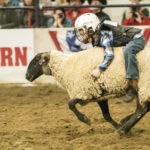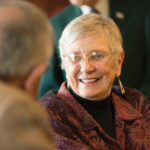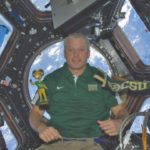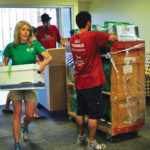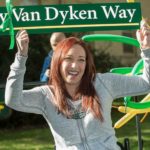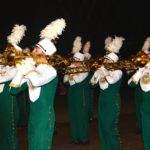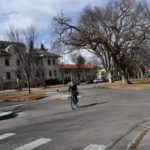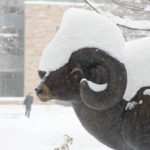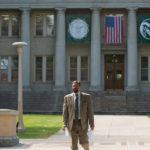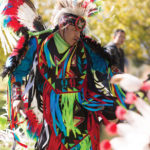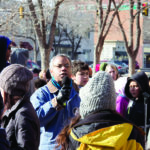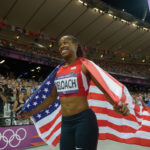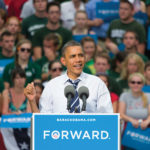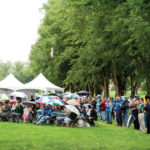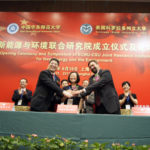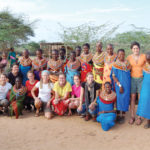Cornell William Brooks, civil rights attorney and past president of NAACP, delivered the Diversity Symposium’s keynote address in the LSC Theater, on Oct. 3. During his tenure, 2014-17, he led the NAACP to 11 victories against voter suppression. A graduate of both Head Start and Yale Law School, Brooks is also an ordained minister, social justice activist, coalition builder and writer.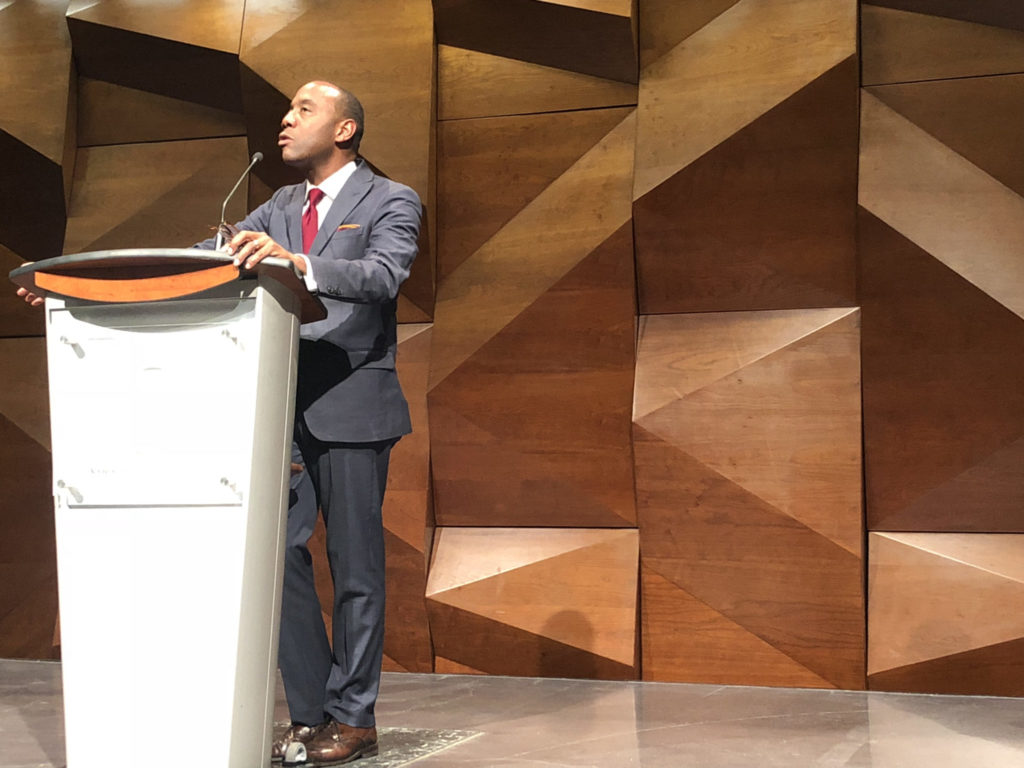
Brooks began by recalling an early memory when as a young minister, he learned that speaking to two people can be just as important as speaking to 2,000. His message consisted of where role models are found, how everyone can join the social justice movement and the importance of reaching multiple generations.
“You don’t need to look to Washington or anywhere else to find your role models,” Brooks said. “Because the people who are going to bring about the revolution, the future keynote speakers, leaders, profits and scholars are all already here!”
Brooks continued to say how some of his most impactful role models are not scholars or public figures, but young high schoolers that he was able to join in social justice protests. He stressed that role models can be found nearby. “These people are not here for a moment, they are here for the duration of the movement; it’s not about what’s on your Twitter feeds, it’s about what’s on your campus,” Brooks said. “Look for the person next to you that is devoting their academic experience to these important issues and admire them.”
Pauli Murray was referenced as an example for students that may not believe they have an opportunity to create change in their community.
“Pauli Murray was challenged by her professors as a student, to defeat segregation, defeat separate but equal, and defeat Jim Crow legislation, and she wrote a paper, as a student, that lead to a book, that lead to the foundation of the argument used to decide the Brown v. Board of Education Supreme Court case,” said Brooks. “You are part of the struggle today and what you create can have a lasting impact.
Brooks stressed the importance of activists that are also educated and informed enough to create policy and strategize. The idea that conversations surrounding diversity topics need to be centered in love and harmony to truly reflect the goals of CSU’s staff and students.
“Exercise a degree of civility,” Brooks said. “If you want to talk about how brave you are as an activist… don’t tell me what you are willing to do unless you are willing to love first.” “How can you create a world of love and justice when we are not all united as one?” Brooks continued. “We don’t need to like one another, we need to love one another. If Martin Luther King can meet with J. Edgar Hoover, why can’t we meet with our own allies and work together?”
LEAD BOLDLY
Brooks, last message, was for those involved in the progression of diversity efforts to lead boldly. Academic activists should be inclined to confront the administration, but also to confront themselves.
“Are we brave enough, do we demonstrate enough integrity, do we demonstrate enough commitment or honesty?’ Brooks asked. “These are the questions that great leaders must ask themselves in order to lead boldly.”
Brooks was able to take part in several other workshops that took place earlier in the day.
“I commend the Office of Vice President for Diversity for posing a thoughtful diversity week,” Brooks said. “The fact that students were engaged in not only the workshops of the event but also planning the event is critically important. I have done many of these events and I think this is the only university where I was able to meet with the faculty, students, administrators and have my own address in one day; I’m glad that everyone takes this very seriously.”
